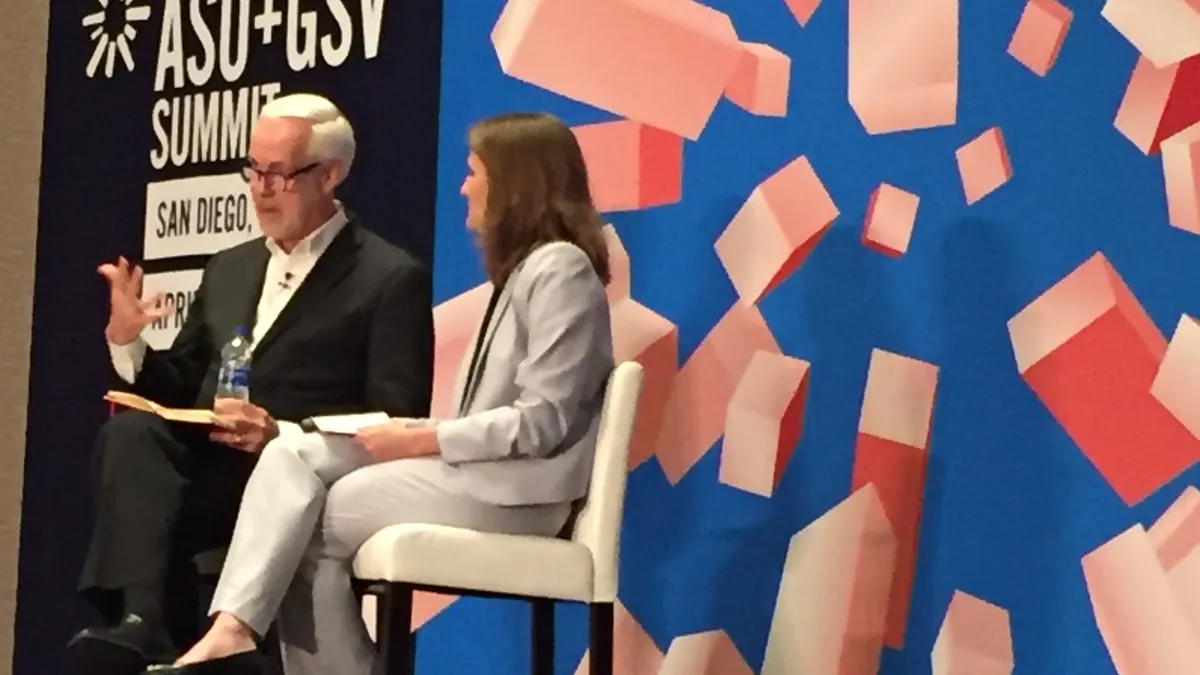Dive Brief:
- In partnership with Kepler University in Rwanda, Southern New Hampshire University (SNHU) is successfully delivering its College for America competency-based education (CBE) program to students in the Kizaba refugee camp and is now expanding to refugee camps and sites in Malawi, Kenya, Lebanon and South Africa. “We knew it worked,” SNHU President Paul LeBlanc said of the institution's CBE model during a Monday session at the ASU+GSV Summit in San Diego. “We wanted to test it out in an international context.”
- The refugee students are outperforming their peers in traditional Rwandan universities by wide margins in most subject areas; some are completing their associate degrees in only six months and 93% of them are receiving job offers. Rwanda is unique in that it allows refugees to work. In fact, one challenge, LeBlanc said, is getting the students to complete their degree programs once they have employment.
- In areas where no internships are available, SNHU is beginning to work with Salesforce to create some online internships. “We’re really trying to be creative in how we get students access,” said Gabi Zolla, chief operating officer of SNHU’s Global Education Movement.
Dive Insight:
LeBlanc describes the work in refugee camps as “the hardest thing we’ve ever done.” But he’s hoping that what the university is learning through the experiences will help offiicials continue to make higher education more affordable and accessible in the U.S., where many adults who want to earn a degree live in higher education “deserts” and don’t have reliable access to colleges or the internet. The university, for example is developing a local assessment center that will lower the cost of assessment and is training graduates of the program to assess students under the supervision of faculty members.
Both LeBlanc and Zolla emphasized the importance of local partners “on the ground” who have credibility in the communities that the university aims to reach. Such partnerships are also relevant in remote or underserved areas in the U.S. where there might be higher numbers of first-generation college students.
Zolla added that all materials can be downloaded, which allows students to keep working if their internet goes down. The concept of allowing a student to complete an internship online also challenges traditional ideas of gaining workplace experience, but is one that many students who are already juggling jobs and family responsibilities would find attractive.










